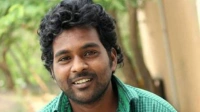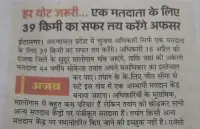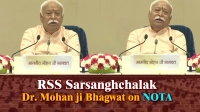– By Sravanthi Boinala
The wounds of Bangladesh partition remained unhealed. This nation was born in 1971 on the basis of cultural identity representing democratic, secular, socialist state but later on, this nation emerged to be a triumph of Bangladeshi Muslim culture. The formation led to the death of nearly 3 million people causing genocide and brutal attacks on minorities, leaving numerous women raped and killed.
Even after 45 years of formation, millions of broken hearts are waiting to seek justice before Bangladesh International War Crime Tribunal and on the other hand the series of attacks continue to target the minorities. Though gradually the war criminals mostly belonging to fundamentalist organisation Jamaat-e-islami were awarded with capital punishment, even today thousands of minorities are struggling for their existence in the Bangla land. The minorities include Hindus, Christians and Buddhists who are being targeted systematically. In the month of June 2016, newspapers have reported two Hindus were attacked by Islamic militants and another one received a threatening letter. One is a Hindu Ashram worker Nityaranjan Pandey, aged 60 years, who was hacked to death in Pabna district on 10th of June. Days later another brutal attack on a Mathematics lecturer Ripon Chakrabarti, aged 50 years, was seriously wounded after being hacked by militants in the Southern town of Madripur on 15th of June. And on the same day evening Ramakrishna Mission priest received a death threat letter from the militants. The Hindu priest was ordered by the sender of the letter not to preach his religion; otherwise he would be hacked to death with machetes. The letter reads, “You are Hindus, Bangladesh is an Islamic country. You cannot preach Hindu religion in the country. Go to India. Otherwise, you will be hacked to death”. This kind of attacks resemble a recent spate of brutal assaults on religious minorities, were militants have killed more than 30 people in Bangladesh since last year. The most targeted group include atheist bloggers, liberal academics, foreign aid workers and other religious groups. Blogger’s are the people who express their dissent against extremists through their posts, who are now hacked to death and their freedom of speech and expression is suppressed. Earlier it has happened in the case of Taslima Nasreen, an eminent writer from Bangladesh, exiled for her writings against war crimes, women atrocities and Islamic fundamentalism. So far since 2015, five bloggers have been killed by the Islamic militants. The last blogger among a string of brutal attacks is Nazimuddin Samad, a post graduate law student from the state-run Jagannath University, was hacked to death in April. Samad was an outspoken writer against injustice and militancy. His facebook posts showed that he was a member of the Shabhag movement, which has been pushing to prosecute those who fought for Pakistan during 1971 liberation war that led to the creation of Bangladesh. In some of his social media posts, he supported a petition to remove Islam as Bangladesh’s state religion and urged the government to take a tougher line with Islamic groups. Similar kind of social media posts were observed among all other bloggers who were hacked to death. With these attacks many bloggers flew away from their homes, but threats continue. Responding to bloggers death, Amnesty International said that the killing was a reminder that authorities in Bangladesh are failing to protect people who were exercising their right to freedom of expression. There is an alarming decline among Hindu population that has came down from 33% to 8% since the liberation war; Bangladeshi-Hindus struggle for their existence has been exacerbated.
Blogger’s are the people who express their dissent against extremists through their posts, who are now hacked to death and their freedom of speech and expression is suppressed. Earlier it has happened in the case of Taslima Nasreen, an eminent writer from Bangladesh, exiled for her writings against war crimes, women atrocities and Islamic fundamentalism. So far since 2015, five bloggers have been killed by the Islamic militants. The last blogger among a string of brutal attacks is Nazimuddin Samad, a post graduate law student from the state-run Jagannath University, was hacked to death in April. Samad was an outspoken writer against injustice and militancy. His facebook posts showed that he was a member of the Shabhag movement, which has been pushing to prosecute those who fought for Pakistan during 1971 liberation war that led to the creation of Bangladesh. In some of his social media posts, he supported a petition to remove Islam as Bangladesh’s state religion and urged the government to take a tougher line with Islamic groups. Similar kind of social media posts were observed among all other bloggers who were hacked to death. With these attacks many bloggers flew away from their homes, but threats continue. Responding to bloggers death, Amnesty International said that the killing was a reminder that authorities in Bangladesh are failing to protect people who were exercising their right to freedom of expression. There is an alarming decline among Hindu population that has came down from 33% to 8% since the liberation war; Bangladeshi-Hindus struggle for their existence has been exacerbated.
Indian government swung into action after the threat letter received by Ramakrishna Mission priest. Reacting to the present scenario, Union External Affairs Minister, Smt.Sushma Swaraj expressed concern over a series of attacks on Hindus and other minority communities by fundamentalist forces in Bangladesh. She said that India has strongly taken this up with the Bangladesh government; security has been increase around the Dhakeshwari temple.
Need of the hour for the Modi government is, to raise their voice in support of Bangladesh minorities and against brutal Islamic attacks, as majority of the minorities hail from Indian origin. Till today we can identify the roots of Hinduism either in the form of the Nation’s name which was originated from the Bengali language or the rivers that are named after Hindu tradition and even the National Anthem that was taken from a poem of Rabindranath Tagore, and the majority of Bengali influence was inherited in Bangla-community ethos. The government should consider providing asylum to Hindu minorities of Bangladesh. Necessary measures are to be implemented for the protection of Hindus and other minorities by projecting the issue on international lines and seek justice for minority community.





Leave a comment